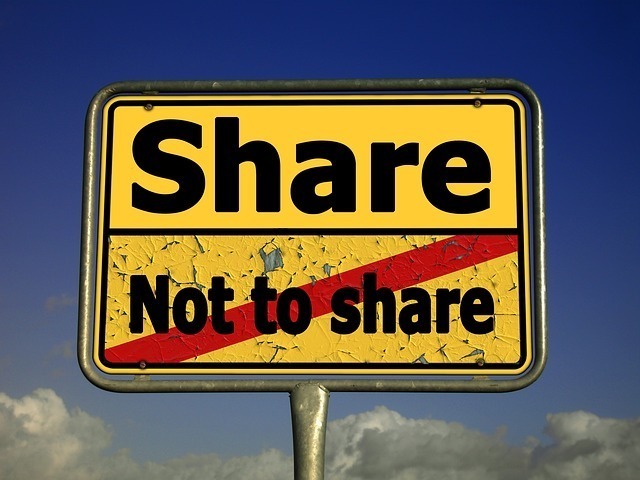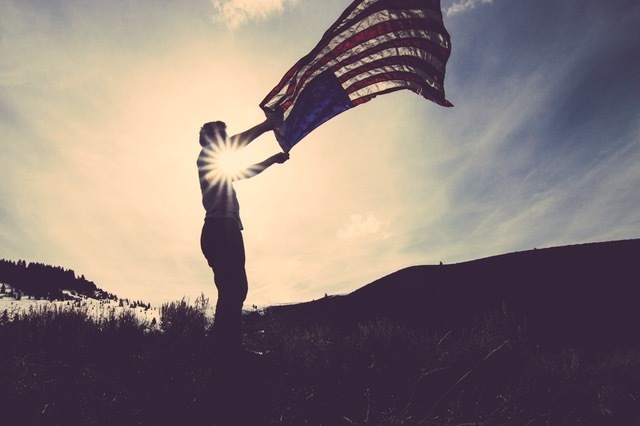Recently, you may have noticed the term “gaslighting” is suddenly ubiquitous. Those of us who are survivors of psychological abuse are already intimately familiar with the term, as well as all of its nuances and effects. However, to many people this is an entirely new concept, so they may not know exactly what it means, or why it’s important. The term “gaslight” was taken from the 1944 film of the same name (an adaptation of a 1938 British play, then a movie in 1940, called “Gas Light”). In it, the antagonist manipulates his wife into believing she is losing her sanity through the incessant use of lies, denial, misdirection, contradiction, and even making small changes to her environment, in an attempt to distract her from his criminal activity.
However, this abusive tactic is not necessarily just used by one abuser against one target. In fact, we are all victims of gaslighting, whether we realize it or not. It is regularly used by society to sow seeds of doubt in the minds of the people, making us more docile and easily controlled. It is so ingrained in our culture, the majority of people have become desensitized to it, so they fail to realize it has permeated every aspect of their lives. Societal gaslighting creates a dominant cultural narrative that not only excludes, but also seeks to discredit, any individuals, identities, or practices that are not strictly within the mainstream. This, of course, includes anyone who is not beneficial to the status quo, but particularly those who pose a threat to it, alienating them from mainstream society, dehumanizing them, delegitimizing their ways of life, and discrediting their messages.

Gaslighting in its simplest form is so prevalent in our culture, most people don’t even notice when it happens to them, or realize they are doing it themselves (and sometimes to themselves). Anytime anyone invalidates another person’s experiences, perception, or feelings; regardless of their intention, it is a form of gaslighting. In many cases, people don’t even view it as a negative or toxic activity. On the contrary, they think they are consoling you by making statements like, “don’t worry,” or “it’s not a big deal,” when you express concern about something, for instance. When your feelings are hurt, they will tell you, “don’t take it personally,” which is advisable at times; however, it is not the best way to relay that message.
If the intention is not malicious, why does it matter?
While it may feel better to be told not to “take it personally” than it does to be told to “lighten up” or to “stop being ridiculous,” the end result is the same. Its pervasiveness deteriorates our ownership of our experiences and emotions, and it prepares us to accept more aggressive gaslighting as a “normal” part of everyday life. We are now primed and ready to lose ourselves.

Modern society is so infused with gaslighting, from media messaging to advertising, it is difficult to recognize by design. Most probably don’t even realize they’re constantly being bombarded with messages telling them what to like, want, need, and what they should be. We are even told what kind of car, job, house, partner, toys, gadgets, etc. we should want/have. More than this, it conveys the message that we will not be successful or happy if we do not have everything we should have. What “things” should we have? All the things we’ve been told we want, of course. And when will we be happy and successful? As soon as we have all the things we’ve been told we should have! Right?
The media even dictate what we should think, like, read, watch, want, feel, and how we should behave based on gender, race, sexuality, and any number of other trivial differences they can seize upon and exploit to make us believe we are all so separate from each other. It reinforces toxic and oppressive gender roles and racial stereotypes, mandating what is considered “normal” and acceptable, as well as what we should “watch out for” and fear in others. All of this distracts us from what is actually going on, and more importantly, keeps us suspicious of, and in competition with, each other.

Social media adds another contemporary layer. Now, not only can we compare our lives to what we see on TV and in movies, but we can also juxtapose our real lives with the “highlight reels” our friends and family share on Facebook and Instagram. Furthermore, we are not even in control of all the content we look at, as social networks rely on algorithms to decide which posts are promoted and put in our faces. This is a subtle yet blatant manipulation.
Aside from that, social media is just about the perfect modern-day opiate for the masses. Receiving notifications increases our feelings of self-worth, keeping us busy seeking that validation from friends and connections. In addition, these activities trigger dopamine to be released, which can cause actual symptoms of addiction. Further, social media can invoke envy, which causes many to actually try to make others jealous of their lifestyles because, otherwise, how would they know they are better than other people? All of this breeds a vicious cycle of greed, competition, and contempt. Keeping people in competition with one another, whether it’s who gets the most social media likes, has the best life, or gets to eat, keeps us divided and is imperative in controlling us.
There is no denying the inherent toxicity of the system in which we are currently trapped. We live in a society that consistently gaslights us into believing we are insignificant if we do not fit neatly within the confines of the box it has manufactured for us. It discounts the identities, relevance, and importance of anyone who is not a white, cisgender, heterosexual male, oftentimes effectively rendering marginalized populations nonexistent. Nevertheless, whether part of a marginalized group or the mainstream, societal and cultural gaslighting adversely affect us all.
“Pull yourself up by your bootstraps”
Our society sends very mixed messages about the roles family and community should play in our lives. On one hand, we are told it’s okay to ask for help if we need it. Yet, on the other hand, we are taught to “pull ourselves up by our bootstraps,” and those who do turn to their families or communities for help are often portrayed as failures. This gives the illusion that we’re most powerful alone, and moreover, that it is more “honorable” to be “self-made” without any help from others.
Statements like, “suck it up” and “pull yourself up by your bootstraps” are meant to make us feel unworthy of success and badly for needing help in the first place. Some call it “tough love” but there’s nothing “loving” about it. The truth is, everyone needs help from time to time. That’s why humans evolved into social animals who are reliant upon community for survival. These statements and their effects keep people isolated and in competition.
Community is an enormous source of strength and power, specifically when organized and mobilized against the exploitative actions of the ruling class. Cutting us off from family and our greater communities, and teaching us that relying on them for support is a sign of weakness, is an effective way to keep us divided, as well as in competition with, one another. Sensing a theme?

“You can’t change the system”
Society also gaslights us into dismissing our own power to influence radical social change, leading to a general complacency with our “lesser of two evils” system. Unfortunately, this discounts and dismisses the reality of those who are further marginalized, disenfranchised, and oppressed by both of the evils. It purports that individuals and communities that continue to be oppressed by the system simply “aren’t trying hard enough” to emancipate themselves from it. This shifts the blame (another abuse tactic) from our broken system to the victims of its oppression and exploitation, invalidating their understanding of their own experiences (gaslighting).
”Mainstream” society is gaslit into believing that if these individuals would just stop rocking the boat, being so deviant, breaking the rules, trying to take our stuff, and so on, they wouldn’t have these “conflicts” in their communities (victim blaming). This makes it justifiable for the majority to turn a blind eye to their suffering because they “brought it on themselves” (more victim blaming). Moreover, it gives people a reason to feel as though they are “better than” another group. “We might have these problems, but at least we don’t have to be a part of this other inferior group.” (People like to feel like they are better than others because that’s how we’ve been taught to measure our success and importance.) This type of gaslighting also communicates the impossibility of having a society without this kind of systemic oppression, leaving many feeling powerless to change the course of their own lives. When people feel powerless to change their circumstances, they often turn to self-medication, or worse, suicide.
The main purpose of all of this is to keep the majority of people in competition for a finite amount of resources, so a tiny percentage of others can keep what they have and continue adding to their already impressive cache. Keeping us in competition with each other is more manageable when we have reason to fear and hate one another. That way our ability to compete for stuff we do not necessarily want is not impaired by our consciences. Additionally, all of this competing with our imagined enemies for things we don’t really even want, keeps us distracted from those who are taking what we need and controlling our lives to further their own nefarious agendas.
Divide and Conquer
It has always been in the best interest of the ruling class to divide the people for one simple reason: We greatly outnumber them. The only way they can maintain control over the masses is to keep us separated. One extremely effective method is to stop members of different groups from communicating, comparing notes, sharing experiences, and collaborating with one another by gaslighting us into believing we are each other’s enemies; therefore, distracting us from getting organized against our true, shared adversary: Oligarchy.

Waking Up and Staying “Woke”
It may seem impossible to take all of this on. Try to remember, this is the result of the gaslighting that society has been using against us since birth. Once you become aware, you will start to notice it more frequently. Stay strong and trust yourself. Simply being aware of it means you can fight against it.
In this society, merely thinking for yourself and deciding what you like and want, independent of what anyone else thinks or tells you, is an act of resistance. Ask yourself what’s really important to you, and listen within for the answer. Stop letting other people and the media convince you of what you want and what will make you happy. Take back the power to decide what you want out of your own life, and what is most important to you.
Do not envy others for their possessions, especially if you only want what they have because someone else has it. Figure out what fulfills you, set a goal, make a plan, and never worry about what anyone else thinks of it. That’s the first step in liberating yourself from our toxic society. Once liberated, the next step is teaching others how to liberate themselves.
To read the post that (sort of) inspired this article, please visit my blog.
Originally published at www.huffingtonpost.com


